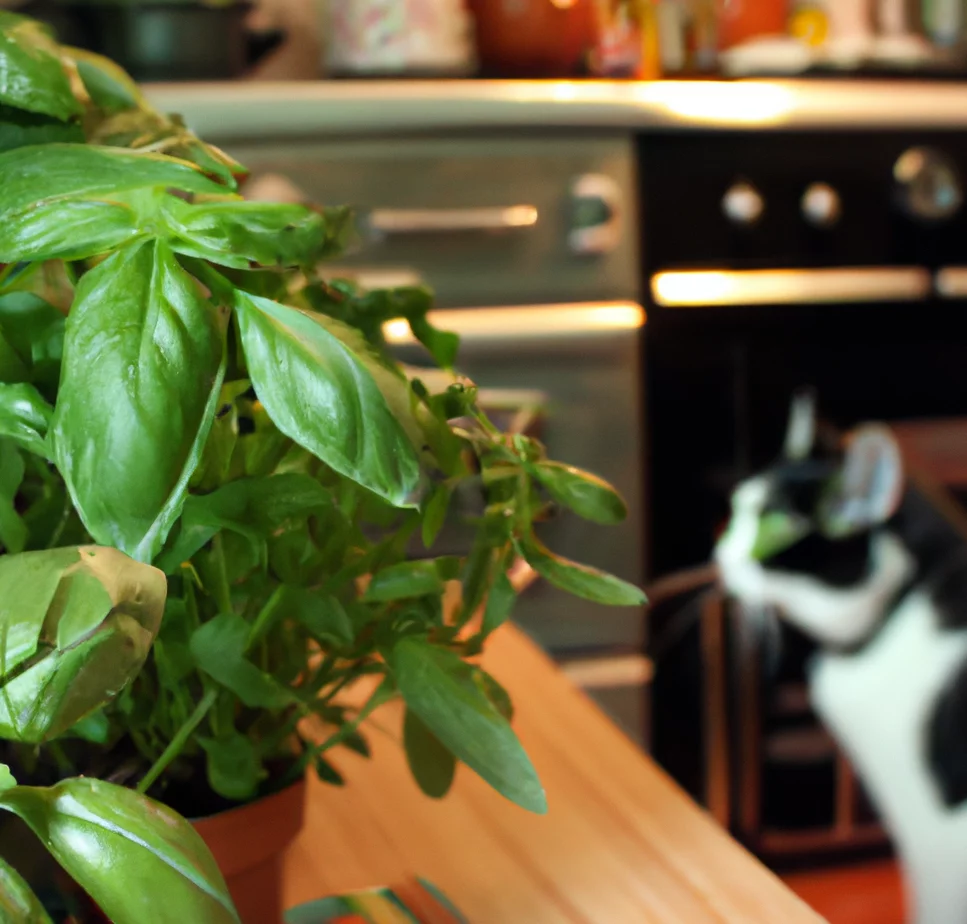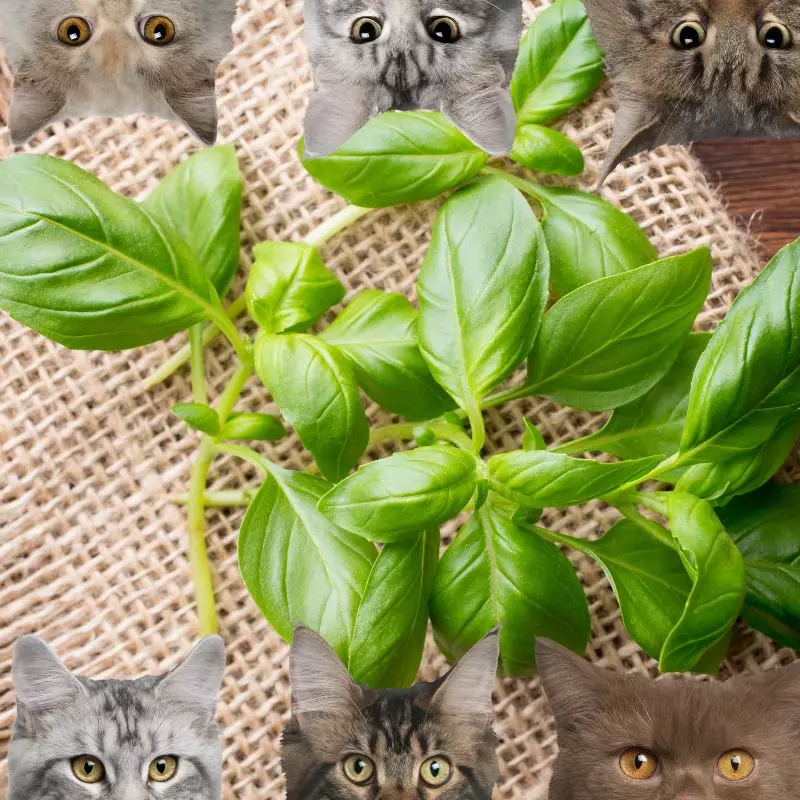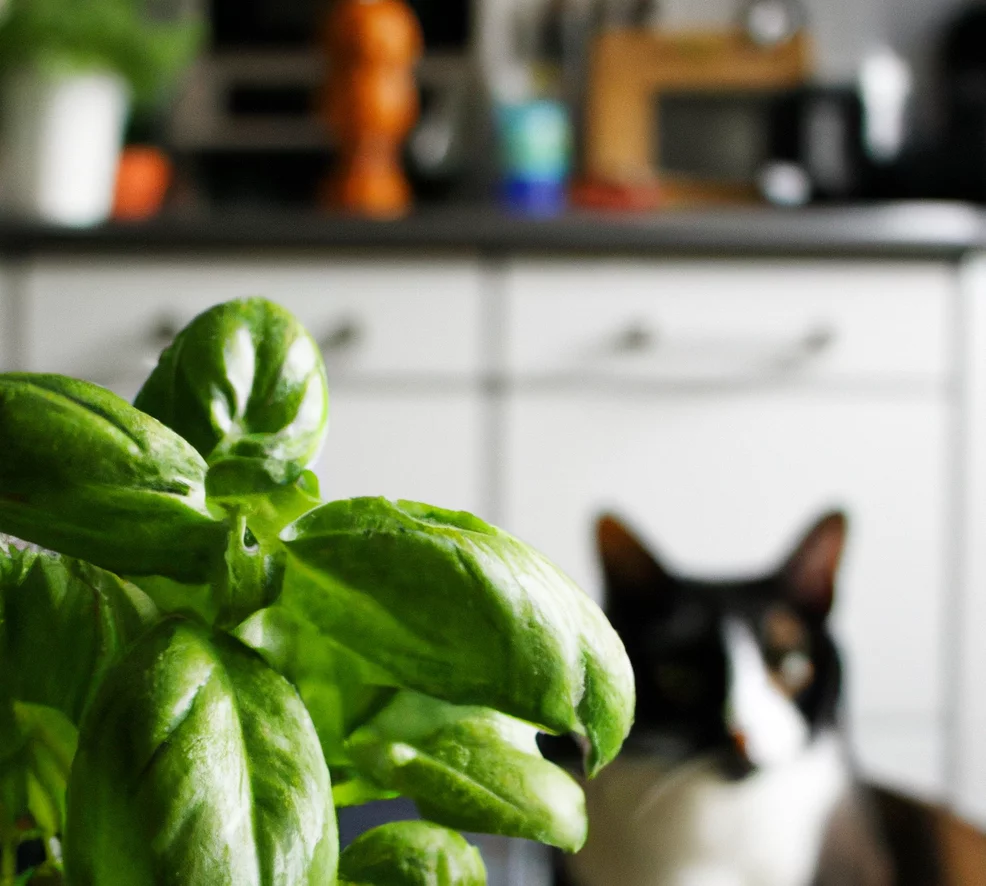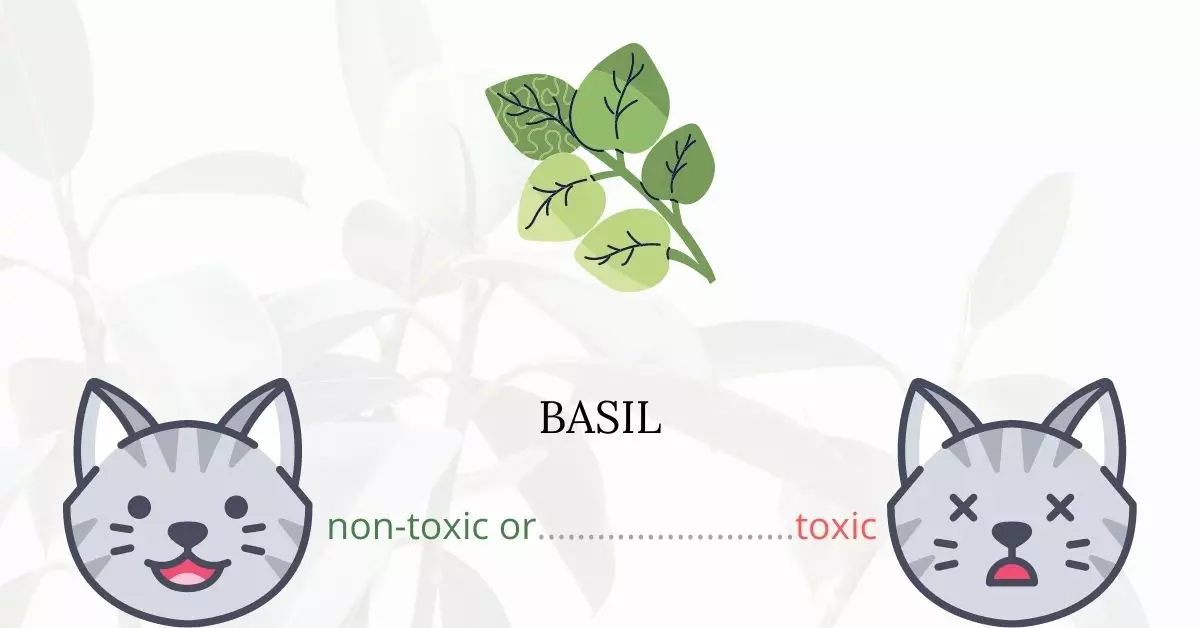No, basil is not toxic for cats. It is indeed one of the most readily available herbs deemed safe for felines. However, it’s paramount to note that just because a substance is not harmful does not guarantee its absolute safety. Given that cats are obligate carnivores, many plants, including basil, can be difficult for them to digest, potentially leading to instances of indigestion.
This article is crafted in collaboration with a cadre of experienced Doctors of Veterinary Medicine (DVMs). Their invaluable insights have empowered us to furnish precise and current information concerning the possible risks posed by various plants, such as basil, to cats. To further enhance the reliability of the provided information, we have also conducted meticulous research via high-authority websites including ASPCA and PetMD, ensuring that every piece of information pertaining to plants and their effects on cats is grounded in credible knowledge and verified facts.
Can Cats Eat Basil?

Yes, cats may consume basil in little amounts. Ingesting basil, whether fresh, cooked, or dry leaves, will not harm your feline. Except for the essential oil generated from basil, all types of basil are safe for cats. Avoid essential oils since the concentrated oil might be damaging to cats’ respiratory systems.
After consuming basil, the cat may either consume the leaves easily and go on, or it can induce indigestion in cats. Most cats resume their usual routine after eating basil.
However, if your cat is allergic to basil, you should take her to the clinic right away because we don’t know how this would affect his body.
What is Basil?

Basil belongs to the Lamiaceae mint family. It is a delicate plant that is widely used as a herb in cuisines worldwide. Basil is native to tropical regions spanning Central Africa to Southeast Asia. In temperate climates, basil is considered an annual plant; but, in warmer horticultural zones with tropical or Mediterranean temperatures, basil can be grown as a short-lived perennial or biennial.
Scientifically known as Ocimum basilicum, basil plants can grow to heights of 30 to 150 cm depending on the variety. Its leaves are dark green and oval, however, they vary in size and form according to the cultivar. The leaf diameters range from three to eleven centimeters long and one to six centimeters broad. Basil has a large, central taproot. Its flowers are tiny and white, and they develop from a single inflorescence, or spike, that arises from the plant’s central stalk.
Keeping Cats Away From Basil

If you have basil or other plants at home (even if they are non-toxic), keep them away from your cats. You can safeguard your plants while also ensuring that your cat does not ingest any dangerous particles.
Cats are discouraged from inspecting plants by certain scents, textures, and sounds. Experts propose covering the plant and soil with aluminum foil to deter digging cats.
If your cat scratches the plant’s pot, they suggest covering it with double-sided sticky tape. Cats despise the feel of these surfaces on their paws.
Plants to Avoid For Your Cats
If you are a cat owner and unsure if the plants growing in your yard are harmful to your cats, check out this list of toxic plants for cats. You can also check our list of non-toxic plants for cats.





